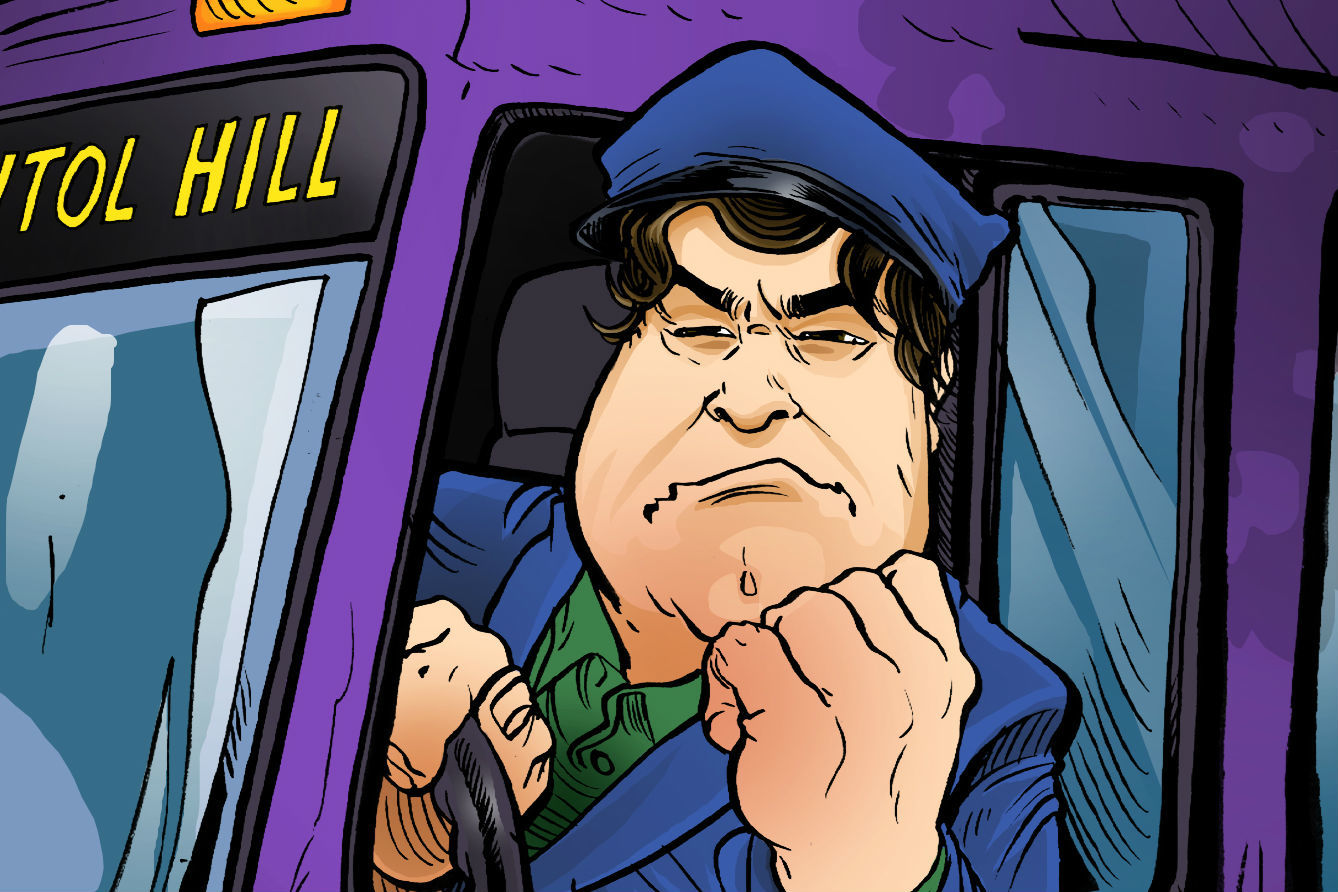Joe Follansbee, 57, a West Seattle resident who began his career as a newspaper and radio reporter, was working as a public relations director with a nonprofit when he was laid off last year. Ever since, he’s found the search for a new full-time job difficult. “I searched pretty hard for a new job, and I’m still searching, but no offers have come my way,” he says.
So he turned to the “gig economy” to make ends meet—working as a contract copywriter for a regional health-care system writing blog posts for five to 10 hours a week. Meanwhile he’s attending classes at South Seattle College and writing the occasional freelance article. “I like my gig because it’s very flexible. I manage my own schedule, the pay is decent, and I do quality work, so everyone’s happy. But the main problem with gigs,” he says, “is the lack of consistency and predictability. You can’t plan from one month to the next. You have to be a good money manager, and it’s hard to build up a cushion for the days when the gigs aren’t coming. Will I have enough savings to make it through? The gig economy is fraught with dangers.”
Often associated with smartphone-wielding millennials, the “gig economy” is a fact of life for many seniors in Seattle: Driving for Uber and Lyft, repairing laptops, designing websites and writing resumes, walking dogs, cleaning gutters and raking leaves, repairing cars, renting rooms or houses through Airbnb. It’s hard to lump gigs into one category, but all have a common denominator—no bennies, no regular schedules, and no security. Take it or leave it.
“It’s a great alternative for some workers, but at the expense of others,” Matt Youngquist, founder and CEO of Bellevue career-coaching company Career Horizons, says of the gig economy. “The gig does not replace traditional career jobs because most people need stable, long-term employment and career development.”
While no two stories are alike, many seniors find themselves in this new reality against their will, effectively pushed out of the mainstream economy as they failed to keep up with changes in technology, or lost positions to younger workers. Some were laid off due to industry cutbacks. Some realized that financially they were far from their retirement goals and expectations, and had much less time to catch up—so they panicked and took second jobs at night and on weekends. Eventually those second and third jobs were their main income. That said, others just find the flexible hours more to their liking.
Deborah, an Uber driver for the past year and a half who asked that her last name not be used, was a career social worker and registered nurse for 25 years. She realized that she was missing her grandchildren’s events, and wanted more time and flexibility. So she signed up with Uber, even renting a car for the first few months. Deborah has made more than 750 trips, and loves the freedom. “Just get in your car, turn on the app, and wait for a client,” she says. “One day I picked up a rider at 145th Street on my way home from Edmonds, and I didn’t even have to go out of my way. That paid for my gas.” She works about 10 hours a week and pulls in about $180. Of course, her income is supplemented by her hospital pension.
Seattle resident Terry Parkhurst, 65, an automotive writer and expert in sports-car, truck, and motorcycle maintenance, had a dual career as a mechanic and writer—and now works 20 hours a week in the book department of the St. Vincent de Paul store on Aurora Avenue, in a senior community service employment program (SCSEP) administered by AARP. It’s a Title V program under the U.S. Department of Labor and pays minimum wage—$13 per hour. He’s had a number of other gigs, including writing for Vintage Truck; Vintage Fire Truck & Equipment; and Antique Power—The Tractor Collector’s Magazine. Last year The New York Times paid Parkhurst $1,000 for a feature article on cars. Parkhurst thinks the term “gig” is meant to impart glamour to living without benefits. “I see it as a semantic tool to convince people that a sense of freedom makes up for the lack of benefits. To my mind, it’s a myth. I spent over 20 years covering collector car auctions for Old Cars Weekly, and received no pension. That’s the reality that most major American corporations are foisting upon a new generation.”
Health can be a major challenge that forces seniors into part-time jobs. Robert Barrington, 72, works 13 hours a week in telephone sales at the pro desk of the Lander Home Depot, a job he found through the Department of Veterans Affairs. He plans to continue this as long as possible, and says it covers his rent. Previously he worked in food service, gaming, teaching at Southern Nevada Community College and the University of Nevada Las Vegas, and started a reservation terminal for rooms, weddings, and events in Las Vegas. “I never thought about retiring,” he says. “The only reason I’m not working full-time is that my legs are giving out. I never considered that eventuality.”
Salle Certo, 63, followed a non-linear career path. “I started working in restaurants in college and while job hunting. Due to lack of jobs in biology—my major—I started temping. I worked all sorts of jobs, mainly admin assistant, and landed a job in a law firm as a paralegal. I moved to their automated department and started working with databases. So my full-time career was data entry specialist.” That job ended, unexpectedly, in December 2013. The job search has been trying ever since. “I didn’t realize how hard it would be to get another job in my field. I should have guessed at my age.”
She now works part-time at a cafe—full circle from where she started. “I searched for two years trying to find a suitable job in my field. I had many interviews but wasn’t selected. I started thinking there was something wrong with me, but I began thinking the job market was too young or the places I applied didn’t want someone my age. I thought maybe I needed to reinvent myself, and started looking and applying for jobs outside my area of expertise, or that sounded interesting and fun. I have so many friends who had to start over in the job market, and that is disappointing and difficult.” But on the positive side, she says, “I don’t sit at a computer all day, I don’t have far to commute, and I don’t miss the 9-5 mentality.”
Youngquist says “The obvious benefit most people trumpet is the ability to generate near-instant cash flow when you need it, on your schedule. Gig jobs allow you to work all sorts of unorthodox hours and, in most cases, to step away from the politics and bureaucracy typically associated with an office job. I think it behooves all of us to be aware of this new quasi-entrepreneurial work option and the pros, cons, and emerging possibilities it presents.”
news@seattleweekly.com







